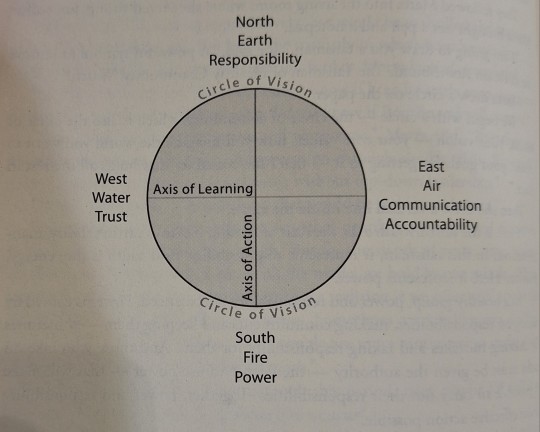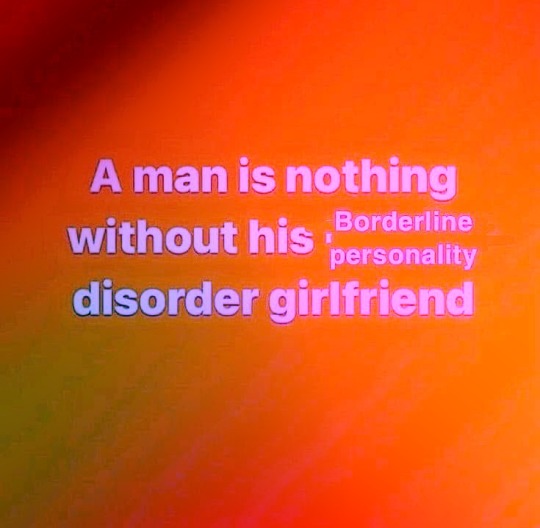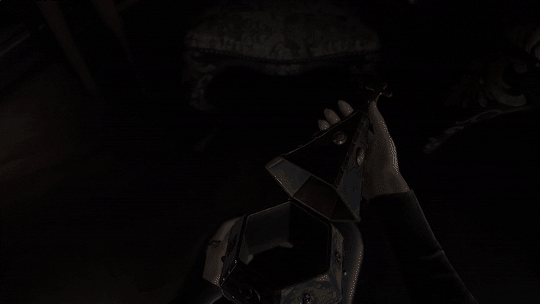#Conflict Resolution
Explore tagged Tumblr posts
Text
We are often told that conflict is a sign of unhealthy relationships or relationships that are doomed to end. We're here to help with the unlearning of that - conflict is very normal and resolving conflict in relationships can actually help us grow together, foster stronger bonds, and deepen our connections. We know dealing with conflict can be hard but you don't have to do it alone. We're here to support you and give you some things to keep in mind for those tough conversations:
Take a minute or two: Sometimes whether we react doesn’t even feel within our control — but it is. When conflict arises, center yourself for a sec: take a few breaths and remind yourself of who you want to be at your best.
In before out: Try and internally process before you speak or act. Do a check-in with yourself and what you’re feeling. Remember you can always ask someone to give you a minute and/or space to process.*** If anyone tries to force you to stay in conflict, they aren’t ready — or don’t want — to resolve conflict with you. It’s time to run, then, not walk, to get the space and emotional safety you need.”
Use “I” statements: It’s important to own and express our experience of things rather than to put our focus on the other person. Sometimes conflict is one person not getting the impact of their behavior on someone else, so now and then an “I” statement can solve the whole issue.
When and where: Resolving conflict is often thorny and requires energy and focus from everyone involved. Choose mediums of communication where no one has to shortcut or multitask. Set things up so everyone has the time, energy & ability to pay close attention to each other.
Patience, grasshopper: When a conflict requires negotiation, or when someone involved is really struggling, resolution is an ongoing process. Instant forgiveness isn’t realistic. Resolution takes time and mutual work.
Be accountable: Taking responsibility clearly and earnestly for our own stuff goes a long way. Acknowledging ways we may have intentionally or carelessly created conflict, or how we can handle conflict better, are kinds of accountability that create space for resolution.
Know that practicing these six tips may feel awkward or clunky at first, but like with anything else, the more we practice resolving conflict together, the more natural it will feel. Trust in the process.
These six tips are from the Rebel Well Series: a Starter Survival Guide to a Trumped America for Teens and Emerging Adults by Heather Corinna and s.e. smith.
136 notes
·
View notes
Text
The thing is, we can't avoid conflict. We try our best, and that's good, but there will be conflict in relationships.
The thing that I think helps define a healthy relationship is how you handle that conflict together. And part of that is you should plan for conflict and how you'll handle that together.
When handling a conflict:
Both parties should be able to have the space to say their piece and talk about their feelings.
Validate the other's feelings if possible. This doesn't mean you necessarily agree with anything, or agree with their version of events. It just means you've heard them and are showing that you hear them.
Both parties needs should be heard, and if possible, a compromise might be found to meet the needs of both parties. This might require negotiating.
It shouldn't be about who's "right" or "winning." It should be about how you can solve the problem together.
If someone wronged someone, there should be accountability. Even if that person didn't mean to hurt the other person. You can and still should apologize for someone being hurt, and don't blame them for being hurt. It might be "I'm really sorry I hurt you. That wasn't my intention at all, but I can see you are feeling hurt, and I am sorry."
Try and be gentle. While I understand the want to yell, or use accusatory statements, these things are more likely to put someone on the defensive which will likely prolong the conflict. People are more likely to hear you out if they don't feel attacked, and are approached more gently. If you aren't in a place to do this, walk away and approach the hard conversation when you are feeling more calm.
Here are some suggestions I have for communicating during conflict. If you don't have a lot of spoons but can read one, I want to suggest the DEAR MAN one as one to prioritize!
This is a post about I-Statements. These statements are very useful for being honest about your feelings while not being accusatory. While it's tempting to be aggressive when talking about things that seem obvious to use, if we want to preserve a relationship with someone, we should approach conflict with the intent of finding a solution and not winning the argument. This usually means approaching the conflict with a goal in mind.
Here is my post about if you need to apologize to someone.
Here is a post about the DEAR MAN method. The goal of this skill is to communicate effectively with someone in a way that helps you express your needs/wants in a way that is respectful of all parties involved in hopes of reaching a positive outcome.
This is about FAST. This skill is useful for working to communicate in a way that preserves relationships while also maintaining one’s own self-respect.
This is a post about GIVE. It's helpful to use with a method like DEAR MAN.
504 notes
·
View notes
Text
Today's thoughts are of the youth of Penelope & Colin and how it affects their relationship, specifically: how they fight.

Penelope is maybe 20 at most. Colin is perhaps 23.
They are also a part of the upper class. This allows them essentially a longer childhood in some ways for the era. They are emotionally pretty on par with a somewhat shy and sheltered 18 year old today who has never had a relationship and a 20 year old college kid who was also a bit hiddenly shy but has dated around a bit.
This means that neither of them have ever had to compromise on a larger, but intimate, and more important scale.
They don't know how to fight from a place of common goal. This is what they have to learn together.
I am going into detail with how this affects multiple scenes, so here is a cut for everyone. :)
Pen & Colin only know fighting with siblings, parents, friends, and enemies. So they know fight against, not fight for.
Penelope specifically only knows how to fight by false retreat and full opposition.
Her false retreat is seen most clearly in her use of Lady Whistledown. This is where she cocoons herself outwardly but lets her anger fly using precisely cloaked arrows. Her LW comments on Colin's fakeness upon his return to Mayfair showed a lethal strike.
Her full opposition fights are seen in her arguments with Eloise, both over her yelling that yes she does want to be married some day and then when Eloise confronted her about being LW, and then in her fights with Colin over LW.

When she and Colin fight in the middle of the street the night before their wedding, Pen goes full opposition, even going up on the high step to put her on the same level as Colin as much as possible. She does not retreat, she does not shrink. She goes conflict blow to conflict blow with him. She apologizes but does not bend or break. There is no compromise to be found because they are fighting against, not for. As one raises their voice, the other matches. There will not be a winner, but they don't know that.

Colin's fighting styles are either full shutdown, or like Pen, full opposition.

His full opposition fight with Pen in the middle of the street shows that he also will not back down. Each thing Pen says, he counters until she loudly declares the one thing he can't refute: that she loves him.
You also see that he is unwilling to compromise in his full shutdowns. He won't even try to talk to Pen after they are married during the nights and mornings where he places himself on the settee. He doesn't know how to say what he desperately needs to express to her in any constructive way. So. He stays on the settee, as close as he can to Pen, but unable to engage with her.
When she tries to engage with him, like at the review of the wedding breakfast planning, and it is she who makes the majority of the attempts, Colin still only knows how to go full opposition and/or full shutdown. Pen tries to answer him honestly when he asks if she will end LW because she really doesn't know. But since he can't give her grace to understand her on this... It only leads to more teary eyes and more distance.

On their wedding day, their tenuous truce after the middle of the street argument is broken in their fight after the Queen's threats. Here we see Penelope go full opposition and proclaim clearly and for the first time that she is Whistledown. And then Colin ultimately reacts with full shutdown, saying he will sleep on the sofa/settee.
The morning after their wedding, Colin is teary-eyed, taking tea fully dressed on the settee where he clearly spent the night. He leaves Penelope abruptly while she is still undressed for the day, intending to leave her out of his plans for the day. He definitely saw she was upset by this. I do wonder if that gave him a bit of dark satisfaction.

When Penelope comes to Bridgerton House to inform Colin of Cressida's blackmailing, Penelope gives way when Colin focuses his full opposition towards Cressida instead of her. Granted it takes a few times of being ignored, but she doesn't yell and ultimately lets it go. You can see that it hurts her to let Colin disregard her wishes, but she still ultimately allows it until he messes it all up. In this debacle they both learned to step back from full opposition between each other.
Penelope realized that even when it does not end well, sometimes she must let Colin have his way. Colin realized that not listening to Pen is where mistakes are made. Neither of them are yelling anymore.

Then comes the day of Francesca and John's wedding. It's not until she doesn't give him the reaction he thinks he wants that morning, as he is forlornly laying on the settee... that we see a shift. She does not react with regret or sadness or pain or anger. Pen is calm, cool, collected. She says she will spare him the confined shared carriage to Bridgerton House. She breezes out of his reach while he is still processing this new development.

Colin takes an important step by going to reread all of Penelope's letters. This is something he did not do in anger. He did this so he could gain perspective. This is his realization that full shutdown is ineffective and is not doing anything he wants or needs.
Penelope also is taking a step forward. She recognizes that false retreat and cloaked attacks are only increasing her own damage. She appeals to Colin with earnestness and honesty after the wedding of Francesca & John. She and he both refrain from moving into full opposition fighting this time. They are listening to each other. Colin asks what Penelope needs from him. She answers with everything he has needed to hear. He tells her what he needs, she listens. They are looking at a common goal. She moves forward with her plan to confess to the queen.

Then after her confession to the Ton at the Butterfly Ball, Penelope does the one thing for Colin that she can think of to heal the wounds of their fighting: she offers to let him go.
This is not something either of them ever wanted. But Penelope offers it because she truly feels, that with their very little communication through this, that Colin must want freedom from her. She cannot see through the pain they have inflicted on one another.
Colin immediately recognizes that now is the moment he must say everything in his heart. He has a moment of panic, of potential loss. Through everything he has always wanted and loved Penelope. He just had no idea how to show it while he was also angry. But now he has let go of his anger, and he will deal with it better should it happen that he is angry again.
Colin does what he needs to most. He tells her everything he is feeling. They are honest with each other. They have their common goal. They won the fights together.

#polin#bridgerton#bridgerton season 3 spoilers#bridgerton spoilers#bridgerton season 3#bridgerton s3 spoilers#bridgerton s3#polin bridgerton#bridgerton 3#nicola coughlan#luke newton#penelope x colin#penelope bridgerton#colin bridgerton#colin my wife bridgerton#peneloise#penelope and colin#colin x penelope#colin|penelope#eloise bridgerton#conflict resolution#growing up#learning to fight together#two legs walking forward#shared journey#love wins#hea#mirrors of each other#angst with a happy ending
957 notes
·
View notes
Text

Inuit communities used song duels to resolve disputes. Disputing individuals composed satirical songs, performed before the entire camp in large igloos. The audience's reaction decided the winner, helping restore harmony.
#Inuit#song duels#conflict resolution#tradition#culture#satire#community#indigenous practices#anthropology#social harmony
357 notes
·
View notes
Text
Dealing With Hostile Christians

Walking an alternative spiritual path—whether as a Satanist, pagan, witch, or something in between—can sometimes lead to uncomfortable encounters with aggressive or judgmental Christians. While some Christians are kind and respectful, some others may feel entitled to challenge or even attack your beliefs. So, here's some advice on handling these situations with confidence, humor, and self-respect.
Know Your Rights
First and foremost, you have the legal right to practice your beliefs. In most countries, including the U.S., freedom of religion is protected. That means:
• You don’t have to engage in religious discussions if you don’t want to.
• You don’t have to justify or defend your spiritual path.
• You do have the right to privacy, including not disclosing your beliefs in workplaces, schools, or public spaces.
If someone is harassing you at work or in a public setting, calmly remind them, “I respect your beliefs, and I expect the same in return.” If necessary, escalate to HR or local authorities.
The Art of Non-Engagement
Sometimes, the best response is no response at all. If someone is pushing their religious views aggressively, consider:

• The Blank Stare: Look at them silently until they become uncomfortable.
• The Polite Walk-Away: Say, “I’m not interested in this conversation,” and leave.
• The ‘Bless Your Heart’ Method: A classic Southern deflection. When they say, “You’re going to hell,” just smile and say, “Bless your heart.”
You don’t owe anyone your energy. Preserve it for more meaningful interactions.
Humor as a Shield
Humor can defuse tension and keep you from getting emotionally drained. Some examples:
• Christian: “I’ll pray for you.”
You: “Thanks! I’ll light a black candle for you!”
• Christian: “You worship the devil!”
You: “I can barely keep up with my video-game addiction. Worshipping a deity full-time? Too much work.”
A lighthearted response can keep the situation from escalating while making it clear that you’re unbothered.
Setting Boundaries Like a Pro
Not everyone deserves access to your personal beliefs. If someone is intrusive, you can:

• Use the Broken Record Technique: “I’m not discussing my religion/beliefs.” (Repeat as needed.)
• Redirect: “Let’s talk about something we both enjoy—seen any good memes lately?”
• Be Firm: “I respect your beliefs. Please respect mine.”
If they persist, cut the conversation short and disengage.
Dealing with Family Pressure
Family gatherings can be tricky when you’re the token “black sheep.” To manage the drama:
• Set expectations beforehand. “I’d love to visit, but I won’t be discussing religion.”
• Use humor to deflect. “Grandma, if I summon demons at the dinner table, I promise they’ll be well-mannered.”
• Keep it simple. If asked about your beliefs, say, “I follow my own spiritual path.” If they push, change the subject.
Your family’s love shouldn’t be conditional on their approval of your beliefs. If they become toxic, setting stronger boundaries (or limiting contact) may be necessary.

Handling Public Confrontations
If a stranger starts preaching at you:
• Stay calm. They want a reaction—don’t give them one.
• Give a neutral response. “I respect your beliefs, but I’m not interested.”
• Walk away. You don’t have to engage just because someone demands your attention.
If the situation escalates into harassment, remove yourself and seek help if needed.
Finding Your Support System
Being surrounded by like-minded people can make all the difference. Look for:
• Local pagan, Satanist, or witchcraft groups.
• Online communities where you can vent and get advice.
• Friends and family (even non-magickal ones) who respect your beliefs.
Having a support system reminds you that you’re not alone—and that there’s nothing wrong with being different.
Remember: Their Fear Is Not Your Problem

Many people react with hostility because they don’t understand what you believe. Some are genuinely afraid due to misinformation. That’s their issue, not yours.
You don’t need to educate or debate unless you want to. You are not a walking religious FAQ. Live your truth unapologetically.
Being a Satanist, pagan, witch, or any other alternative spiritual practitioner in a predominantly Christian society comes with its challenges, but you are not obligated to shrink yourself to make others comfortable. Use humor, set firm boundaries, find your community, and remember: your spiritual path is yours alone.
And if all else fails—light a candle, take a deep breath, and let their judgment roll off like water on a well-worn stone.

#Christian hate#christianity#ex christian#anti christianity#witch#witchcraft#lefthandpath#satanic witch#satanism#witchblr#witch community#satanist#theistic satanism#dark#magick#judgemental#prejudice#Hate#Fear#brainwashed#freedom of religion#religious trauma#religious freedom#religion#organized religion#bible belt#jesus freak#anti harassment#conflict#conflict resolution
81 notes
·
View notes
Text
holy shit I am genuinely having my mind blown by Starhawk's The Empowerment Manual and what she has to say about making collaborative groups work in the long-term, conflict resolution, social power and how hierarchies can form in supposedly egalitarian groups. Everyone who works in community organizing should read this book.
In brief, she says that to create a sustainable group without dominative hierarchies, that can nonetheless handle conflict and changes over time, you need:
A clearly articulated vision, norms, and expectations so that people can understand how the group functions and whether they want to be a part of it
A clearly articulated power structure, where unearned privilege or even any one person's earned social influence is limited, because authority is given to those who take on responsibilities in the group, and there are ways for newcomers to earn decision-making power by taking on responsibilities and participating in mentoring or training
To build trust within the group by communicating respectfully and constructively and creating accountability for each other

To get just a little woo, she draws this Talisman of Healthy Community that illustrates how these things are held in balance:
[image description: a circle labeled 'Circle of Vision' with two intersecting axes. One is labeled the 'Axis of Action' and runs from the bottom, which is labeled 'South Fire Power' to the top, which is labeled 'North Earth Responsibility.' The other is labeled 'Axis of Learning' and runs from the left, which is labeled 'West Water Trust' to the right, which is labeled 'East Air Communication Accountability.' end id]
97 notes
·
View notes
Text
You don’t solve any problems by punching faces. It sure fucking feels good though.
24 notes
·
View notes
Text
DEAR MAN: Making Yourself Heard
This interpersonal effectiveness skill helps you assert your boundaries, and get yourself heard and understood.
D: Describe
Describe the current situation (if necessary). Stick to the facts. Tell the person exactly what you are reacting to.
Example: “You told me you would be home by dinner but you didn’t get here until 11.”
E: Express
Express your feelings and opinions about the situation. Don’t assume that the other person knows how you feel.
Use phrases such as “I want” instead of “You should,” “I don’t want” instead of “You shouldn’t.”
Example: “When you come home so late, I start worrying about you.”
A: Assert
Assert yourself by asking for what you want or saying no clearly. Do not assume that others will figure out what you want. Remember that others cannot read your mind.
Example: “I would really like it if you would call me when you are going to be late.”
R: Reinforce
Reinforce (reward) the person ahead of time (so to speak) by explaining positive effects of getting what you want or need. If necessary, also clarify the negative consequences of not getting what you want or need. Remember also to reward desired behavior after the fact.
Example: “I would be so relieved, and a lot easier to live with, if you do that.”
M: stay Mindful
Keep your focus on your goals. Maintain your position. Don’t be distracted. Don’t get off the topic.
“Broken record”: Keep asking, saying no, or expressing your opinion over and over and over. Just keep replaying the same thing again and again.
Ignore attacks: If another person attacks, threatens, or tries to change the subject, ignore the threats, comments, or attempts to divert you. Do not respond to attacks. Ignore distractions. Just keep making your point.
Example: “I would still like a call.”
A: Appear confident
Appear effective and competent. Use a confident voice tone and physical manner; make good eye contact. No stammering, whispering, staring at the floor, retreating. No saying, “I’m not sure,” etc.
N: Negotiate
Be willing to give to get. Offer and ask for other solutions to the problem. Reduce your request. Say no, but offer to do something else or to solve the problem another way. Focus on what will work.
Turn the tables: Turn the problem over to the other person. Ask for other solutions.
Example: “How about if you text me when you think you might be late?” “What do you think we should do? . . . I can’t just stop worrying about you [or I’m not willing to].”
More tips
Describe the current interaction.
If the “broken record” and ignoring don’t work, make a statement about what is happening between you and the person now, but without imputing motives.
Example: “You keep asking me over and over, even though I have already said no several times,” or “It is hard to keep asking you to empty the dishwasher when it is your month to do it.”
Not: “You obviously don’t want to hear what I am saying,” “You obviously don’t care about me,” “Well, it’s obvious that what I have to say doesn’t matter to you,” “Obviously you think I’m stupid.”
Express feelings or opinions about the interaction.
For instance, in the middle of an interaction that is not going well, you can express your feelings of discomfort in the situation.
Example: “I am sorry I cannot do what you want, but I’m finding it hard to keep discussing it,” or “It’s becoming very uncomfortable for me to keep talking about this, since I can’t help it. I am starting to feel angry about it,” or “I’m not sure you think this is important for you to do.”
Not: “I hate you!”, “Every time we talk about this, you get defensive,” “Stop patronizing me!”
Assert wishes in the situation.
When another person is pestering you, you can ask them to stop it. When a person is refusing a request, you can suggest that you put the conversation off until another time. Give the other person a chance to think about it.
Example: “Please don’t ask me again. My answer won’t change,” or “OK, let’s stop discussing this now and pick it up again sometime tomorrow,” or “Let’s cool down for a while and then get together to figure out a solution.”
Not: “Would you shut up?” “You should do this!”, “You should really calm down and do what’s right here.”
Reinforce.
When you are saying no to someone who keeps asking, or when someone won’t take your opinion seriously, suggest ending the conversation, since you aren’t going to change your mind anyway. When trying to get someone to do something for you, you can suggest that you will come up with a better offer later.
Example: “Let’s stop talking about this now. I’m not going to change my mind, and I think this is just going to get frustrating for both of us,” or “OK, I can see you don’t want to do this, so let’s see if we can come up with something that will make you more willing to do it.”
Not: “If you don’t do this for me, I’ll never do anything for you ever again,” “If you keep asking me, I’ll get a restraining order against you,” “Gosh, you must be a terrible person for not doing this / for asking me to do this.”
- from DBT Skills Training Handouts and Worksheets (2015) by Marsha M. Linehan, pp. 125-7.
#dbt#dbt skills training#dear man#dearman#interpersonal relationships#interpersonal effectiveness#conflict resolution#assertiveness#boundaries#boundary setting#assertion
151 notes
·
View notes
Text


**A Man is Nothing Without His Borderline Personality Disorder Girlfriend: Hilarious Tales from the Trenches of Love**
Let’s face it: relationships can be wild rides, and when you throw in a girlfriend with borderline personality disorder (BPD), you’re in for an adventure like no other. As someone who’s been in this kind of relationship, I can confidently say that a man is nothing without his BPD girlfriend—especially when it comes to the endless stories that come from navigating the quirky world of love and mental health.
**The Emotional Rollercoaster**
First off, dating someone with BPD is like getting a VIP pass to the emotional rollercoaster of a lifetime. One moment, she’s on top of the world, showering you with love and affection like you’re the last slice of pizza at a party. The next, you’re standing in the eye of the storm, wondering why she’s suddenly convinced you’re the villain in her life story. “Did I forget to take out the trash?” you ponder, while she’s accusing you of plotting to ruin her life. Spoiler alert: No, you didn’t forget to take out the trash— but now you’re questioning every life choice you’ve ever made.
**Love and Fear of Abandonment: The Ultimate Combo**
Then there's the classic “I can’t believe you’re leaving me!” scenario every time you run to the store for milk. It’s a routine grocery trip, but suddenly, you’re walking into a scene reminiscent of a dramatic soap opera. “You’ll find someone better! I know it!” she cries, clutching her stuffed penguin like it’s the last lifeline on a sinking ship. Little do you know, this is just a friendly reminder that your seemingly mundane errand could threaten the very fabric of your relationship.
**Communication Shenanigans**
Let’s talk about communication, or as I like to call it, “The Game of Telephone on Steroids.” Conversations often morph into full-blown debates over the slightest misunderstandings. You could say, “Wow, it’s a beautiful day!” and end up with her convinced you’re subtly hinting that she’s not as bright and sunny as the weather. You know what they say: “It’s not what you say, it’s how you say it.” And trust me, if you say anything that can be interpreted as a hidden insult, you’ve just opened Pandora’s box.
**The “I Love You, I Hate You” Tango**
If you’re in it for the long haul, you’ll quickly learn that the “I love you, I hate you” tango is the official dance of your relationship. One minute, you’re cuddling on the couch, watching romantic comedies and discussing your future together. The next, you’re being accused of not caring enough because you forgot to ask about her favorite flavor of ice cream. The irony? You both just polished off a pint of her favorite flavor! But logic? Who needs that in a whirlwind romance?
**The Quirky Quirks**
Now, let’s not forget the quirky quirks that come with the territory. There are spontaneous road trips to nowhere, where you find yourself navigating to a destination you didn’t even know existed, all in the name of “let’s find ourselves!” You might even discover that your new favorite hobby is deep-diving into mental health articles, not for your sake, but to keep up with the whirlwind that is her life. You’ll laugh, you’ll cry, and by the end, you’ll probably be a certified expert in BPD—complete with a degree in emotional navigation.
**In Conclusion: Embrace the Chaos**
At the end of the day, dating a woman with borderline personality disorder may come with its challenges, but it’s also filled with unforgettable moments, lots of laughs, and a kind of love that’s fierce and unwavering. Sure, there will be bumps along the way, but every relationship has its quirks. The key is to embrace the chaos, find humor in the madness, and remember that love comes in all forms—even if it includes an emotional rollercoaster or two.
So here’s to the men out there who find themselves navigating the tumultuous waters of love with a BPD girlfriend—may your adventures be wild, your stories be hilarious, and your relationship be a journey worth taking! Just remember, without her chaotic charm, you’d be left with a very boring life…and who wants that?

@bigmikeyde ❤️ @pumpkin-the-girlie-girl-vixen
#bpd relatable#bpd relationships#navigating bpd#understanding#mental health advocate#mental health#mental health awareness#tips and advice#connection#bipolar personality disorder#conflict resolution#favorite person#bpd memes#bpd meme#actually bpd#bpd core#bpd thoughts#bpd blog#bpd problems#bpd#bpd stuff#support#real life#the struggle is real#relatable characters#complexity of relationships#relationship struggles#complex relationships#you were warned#i warned you
30 notes
·
View notes
Text


Update: THEY SETTLED THEIR DIFFERENCES 🫶
Oh, and Bebe recommended that Homura would look awesome with braided hair. I wonder what will happen !!
#madoka magica#madokamagica#pmmm#puella magi madoka magica#anime#magical girls#magical girl#witch#charolette#Bebe#momoe nagisa#nagisa momoe#akemi homura#homura akemi#nendoroid#figure#anime figures#figures#happy#awesome#conflict resolution
33 notes
·
View notes
Text

#wisdom#discretion#tact#diplomacy#kindness#compassion#empathy#understanding#forgiveness#letting go#moving on#self-control#self-awareness#emotional intelligence#conflict resolution#communication#relationships#boundaries#art#photography#spilled thoughts
351 notes
·
View notes
Text

#sudan crisis#civil war#abdelfattah alburhan#mohamed hamdandagalo#humanitarian crisis#peacebuilding#conflict resolution#international response#regional powers#sudanese people#conflict intervention#bashir regime#military coup#political unrest#human rights#crisis management#diplomatic efforts#peace process#international community
221 notes
·
View notes
Text
Imagine you and your boyfriend have an argument and you're both feeling angry and frustrated. So you decide to leave each other alone for a few hours to go cool off steam. You feel calmer after you relax and get the tension off your mind. He feels calmer as well after reflecting on his thoughts and he's ready to discuss it further with you. So you two sit down on the coach together to talk about it ❤️🩹
#healthy relationship goals#conflict resolution#mlm blog#mlm thoughts#achillean#mlm positivity#managing anger in relationships#relationship goals#mlm relationship#gay relationship#male anger management#emotional well being#men's mental health#Men's emotional health
12 notes
·
View notes
Note
[INFJ] Hi, I was stuck in Ti loop for a long time but getting better now. I know I want to have deeper relationships but the problem is I don't know how. I don't know what "deeper" means and how to get there. Please could you provide some examples to help me? Thank you so much
I'll begin by saying that taking relationships "deeper" is rarely easy, especially in adulthood when it's harder to make friends. If you've recovered from Ti loop, then you should already be aware of how important it is to approach relationships with realistic expectations. And if you're working on Fe, you should already be aware of how important it is to approach people with an attitude of openness.
As you imply, if you're going to set a goal, define it properly so that you know what you're actually aiming for. You say you want deeper relationships but don't know what "deeper" means. Is that true, though? You must have some idea about it, otherwise, how could you come to want it? Give yourself some credit. If you've suffered relationship problems, maybe it's a sign you need to improve some social skills, but it doesn't mean you know nothing at all.
Having realistic expectations doesn't only refer to how you view others, it also includes being honest about your own needs, desires, and limitations. It's difficult to get what you want when you can't even say what you want out loud in the first place. What does an ideal relationship look like to you? Describe it, in detail. What appeals or doesn't appeal to you in people? What are you looking to get from your relationships? What is it you feel has been lacking so far?
Healthy INFJs are generally accepting of individual differences, which means they don't expect everyone to have the same needs and desires. Not everyone is going to be compatible with you, so you have to cultivate the ability to spot good relationship potential (Ni) and direct your effort to where it counts the most. Otherwise, you might spread yourself too thin or hit too many dead ends. As an introvert, the energy you have for socializing is limited, so spend it as wisely as you can.
When people use the word "deeper" to describe a relationship, they are usually referring to the concept of intimacy. Intimacy is a way of describing or determining how close two people are. You don't need to have a lot of experience with relationships to know that there are varying levels of closeness. A simple example: stranger to acquaintance to friend to lover - these gradually go from not intimate to very intimate.
Intimacy can be nurtured in a variety of ways. The two most common ways are though communication and sharing.
(1) With respect to intimacy, communication refers to what two people can talk about. The more intimate the relationship, the more freely you can talk about private matters. What makes intimacy through communication difficult is that it requires both parties to be capable of a certain degree of emotional vulnerability. And the path to vulnerability needs to be traveled at a safe and comfortable pace. Go too slow and the relationship stalls; go too fast and you might trigger defensiveness or mistrust. Thus, you can rate the intimacy of a relationship based on how vulnerable you can be with each other.
(2) With respect to intimacy, sharing refers to what two people experience together. The more intense the experiences you've been through together are, the more intimate the relationship tends to be. What makes intimacy through sharing difficult is it requires two people to spend a significant amount of quality time together, which means there has to be a certain level of commitment from both parties. Not enough commitment and the relationship fizzles or it becomes inequitable. Thus, you can rate the intimacy of a relationship based on how many meaningful memories you've experienced together and want to continue to experience together.
When you lay out the definition of intimacy like this, you might feel discouraged because of how hard it sounds. This brings me to an important point: True appreciation and enjoyment of relationships happens during the journey toward deeper intimacy - not at the destination. A relationship can always become more intimate, so there is no real "destination" per se. If you enter into a relationship as though you are relentlessly pursuing "deeper", you can actually come off as having an "ulterior motive" that ends up turning people off.
Caring only about the end result and not the process of getting there is a common trap NJs set for themselves. It is a consequence of being too idealistic and wanting relationships to match up to a false image. Relationship magic cannot happen when your mind is distant, living in some imagined future, and not present with what's happening right now in front of your nose.
For example, some INFJs have said to me that they don't like small talk because it is "shallow". They mentally check out as soon as things don't meet their expectations. This actually reveals that they don't have any genuine interest in people. Rather, they fancy themselves "deep" and merely use people as tools for validation.
Small talk is an important part of the journey of building a relationship because it is an opportunity to express genuine interest in people, which encourages them to invest interest in return. Wanting to skip over the early stages of relationship building means you're basically expecting to get a deep relationship without having to put in the effort to build it. This is unreasonable and increases the chances of relationship failure. (Thinking that one should be able to achieve success without following conventional rules and procedures is a common expression of N arrogance.)
Based on the two points outlined above, there are some things you ought to do to improve your relationship chances, and they go along with Fe development:
(1) Improve your communication skills. Communication is not just exchanging data. Communication is not just goal achievement. Communication is the means through which two people learn about each other and get accustomed to each other.
Most of what is communicated between people is not in the words themselves but in the feelings and emotions that pass back and forth. The biggest factor that influences the way people make relationship decisions is how the other person makes them feel. So, are you aware of how you make people feel and why?
If you're only thinking about the "data" or the "goal", then you're probably not attuned to feelings and thus not attending to them. This is something to be mindful of because having suffered from Ti loop means you aren't as in touch with feelings as is necessary to be a psychologically healthy individual.
Learning how to communicate better also includes understanding the importance of being proactive and taking initiative. You have to seek out good opportunities and extend invitations to people to converse or spend time with you. As you get to know each other, slowly steer the relationship into deeper territory, all the while monitoring if the other person is cooperating.
Some lonely people complain to me that they can't make friends because they aren't interested in the conversations they have with people. It makes me wonder why they don't steer the conversation in the direction they want. Do they just sit there doing nothing as they get talked at? Being too passive is problematic for socializing because things only go one-way instead of both-ways.
How can you tell if relations are getting deeper over time? Look at the content of your communications and evaluate it on a scale from "public" to "private". Are your communications broaching more and more private matters over time? If so, then the relationship is getting closer. If not, then there's distance, and try to figure out why. Maybe the person isn't as interested as you hoped, or maybe you've hit a psychological wall of some kind.
Here is a general outline of how intimacy evolves in stages (including some red flags that indicate further intimacy might not be possible):
i. Open with small talk, usually by reciting generalizations and conveying everyday information. This is a chance to gauge mutual interest and potential compatibility. Conversation is maintained through asking simple factual questions. (Red flags: They are uncooperative or unresponsive. Chalk it up to bad timing or a bad day if you want, but if nothing changes after 2-3 attempts, move along.)
ii. Comfort increases; curiosity shines through. Conversation is maintained through asking open-ended questions that encourage sharing of preferences and opinions. This creates opportunities for interesting and fruitful discussions, though disagreements can arise. (Red flags: They crap on your preferences/opinions for no good reason. You strongly disagree with their preferences/opinions on moral or intellectual grounds.)
iii. Trust increases, so people talk more about their beliefs, values, wants, desires, plans, hopes, dreams, and aspirations. This creates opportunities to encourage or cheer each other on. Conversation usually flows effortlessly and energetically. (Red flags: They put down your ideas, without offering any reasoning or alternative views. Your beliefs+values seem irreconcilable with theirs.)
iv. Closeness increases, so people feel free to express feelings/emotions seriously and earnestly. This creates opportunities for mutual validation. Conversation feels very engaging but may ebb and flow depending on the difficulty of the subject matter. (Red flags: They often invalidate your feelings or imply you are abnormal, without offering any explanation of their perspective or any expression of care about wanting you to feel better. You just can't relate to their perspective on things no matter how hard you try.)
v. Intimacy increases, so people feel safe to open up about things they don't normally reveal, e.g., bad habits, suffering, fears, insecurities, faults, flaws, failures, traumas, etc. This creates opportunities to express mutual empathy and care. Conversation feels supportive and compassionate. (Red flags: They are childishly judgmental or criticize you for things you have already expressed sensitivity about. You lack empathy for their struggles.)
vi. Deep intimacy is achieved when both parties can be completely authentic and honest about what they really need (from each other). This opens up opportunities to honor, strengthen, or renew the bond over the long term. Conversation feels spiritually nourishing and reinforces feelings of closeness and unity. (Red flags: They show no genuine interest in hearing about your needs, let alone helping you fulfill them. You feel the urge to pull away because their needs are too much, unreasonable, or shouldn't be your responsibility.)
Remember: Different people have different intimacy capabilities. The more compatible you are with someone in terms of background and personality, the quicker you can establish intimacy. However, for a variety of legitimate reasons, not everyone is ready or willing to go as deep as you want them to go. Heck, you may not be ready, either. The key is to stay in touch with the realities of the relationship. If opportunities pop up, take them. If opportunities dry up, reassess what role you want the relationship to play in your life. You need a variety of relationships in life, so it's not healthy to think that "every relationship must be deep or else sayonara".
(2) Improve your conflict resolution skills. Generally speaking, healthy INFJs are willing to go above and beyond to make a relationship work. If anything, they need to be mindful about not committing or giving more than others. However, relationship work does not only refer to commitment. The work also refers to the willingness to work through conflict. INFJs are often conflict avoidant and can even get very extreme in taking conflict too seriously - not good.
Relationship conflict is normal, especially as relationships get more intimate and there's more private stuff to run afoul of. I personally don't know one healthy long-term couple that doesn't get into regular arguments. Conflict must be accepted and embraced as an opportunity for two people to align themselves better.
When you first meet someone, you don't know anything about them. Studies have shown that even close friends/lovers don't really know each other as well as they believe they do. At some point, you're bound to overstep or offend by accident, and that's perfectly normal.
What matters most is how you handle conflict. Do you run away? Clam up? Ignore? Deny? Get defensive? Backpedal? Make excuses? Fret and fawn? What you should be doing is communicating authentically and learning important lessons about what to do (or what not to do) in the future. In this way, two unique individuals gradually forge more and more common ground and mutual understanding.
You know a relationship is going well when you're able to work out conflicts without residual resentment and feel stronger for having been through it, even if you had to fumble and stumble. However, not everyone is equally capable of conflict resolution. If you run into problems too often, if problems keep recurring, or if problems remain unresolved for too long, then at some point you have to reassess and reflect on whether the relationship is healthy enough to keep going.
.
Skill building takes time, effort, and practice. You'll make mistakes, which is fine, as long as you take responsibility and learn from them. If you lack confidence in your social skills, then it's a good idea to look for easier opportunities to start with. For example, aim to befriend EFs because they tend to be more friendly, open, and forgiving. Once your social skills are stronger, you can branch out and pick up on a greater variety of relationship opportunities.
#infj#auxiliary fe#social skills#intimacy#communication#conflict resolution#curiosity#empathy#socializing#relationships#ask
24 notes
·
View notes
Text



Indika's ending.
#self reflection#possessed by the devil#lost faith#indika#video games#2024#demonic#the devil in me#bad ending#feeling empty#repentance#sinner#devil#sin#no forgiveness#lost in thought#satan#giving up#kudets#emptiness#empty box#nun#naughty nuns#possessed#narrative#finale#conflict resolution
24 notes
·
View notes
Note
Any idea to know what to do and say in terms of conflict?
Depersonalize others' comments & actions
Perceive the person's intentions – are they seeking war or peace?
If their intentions are sound, enter the conversation with the mindset of two individuals vs. a problem – decouple their humanity, emotions, wants, and needs from external factors & situations
Seek to understand, not win through your conversation
Approach the conversation from a solutions-oriented POV
Remember that compromise means both parties walk away happy or at least content with the outcome – self-sacrifice has no place in conflict resolution or negotiation
Hope this helps xx
#conflict resolution#interpersonal skills#interpersonal communication#interpersonal relationships#people skills#work culture#relationship tips#friend advice#interpersonal effectiveness#self confidence#communication skills#femmefatalevibe#q/a#social skills#assertive communication#self improvement
136 notes
·
View notes